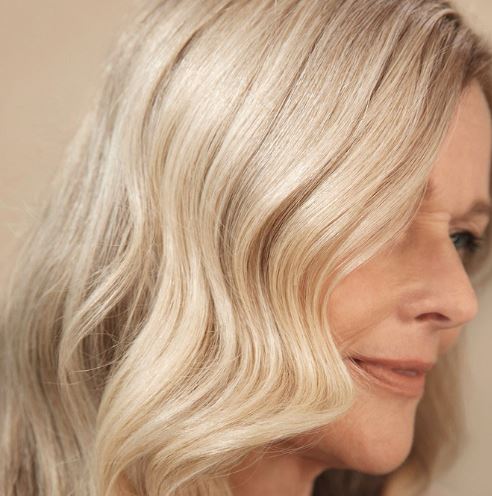Table of Contents
- 1 Introduction
- 2 Understanding the causes of hair loss
- 3 Affects and Signs of Hair Loss
- 4 The diagnosis of hair loss
- 5 Non-surgical hair loss treatments
- 6 The Surgical Hair Loss Treatments
- 7 Lifestyle changes and home remedies
- 8 Dealing with Hair Loss
- 9 Conclusion
- 10 Frequently Asked Questions – Hair Loss Treatment
- 10.1 Can the loss of hair be reversed?
- 10.2 Are there any negative side consequences of taking medications for hair loss?
- 10.3 Is the loss of hair only natural?
- 10.4 How long will the process take before you see the results from treatments for hair loss?
- 10.5 Are there alternative treatments to treat hair loss?
Hair loss is a frequent issue that affects a lot of people around the world. It can cause a huge impact on one’s self-esteem as well as general well-being.
This article gives a thorough review of hair loss as well as its causes, signs, and treatment options that are available.

Introduction
Hair loss, sometimes referred to as alopecia refers to the loss, either in whole or in part, of hair on the scalp and other areas of the body, where hair is usually growing. Although hair loss is normal and is common to lose a little hair on a daily basis, excessive loss of hair can be a source of stress or may necessitate treatment.
Understanding the causes that cause hair loss is essential in finding the most appropriate treatment method.
Understanding the causes of hair loss
Hair Loss Definition
Hair loss is an intricate condition that can be caused by a variety of factors such as hormonal changes, genetics medical conditions, medications as well as lifestyle decisions.
It can appear in various forms that include a gradual loss of hair patches of baldness or total hair loss.
What causes hair loss?
Loss of hair can cause by an array of hormonal and genetic causes. Other reasons for hair loss are:
- Aging
- Unbalances in hormones (e.g. androgenetic Alopecia)
- Medical ailments (e.g. thyroid disorders and autoimmune disorders)
- Nutritional deficiencies
- Certain drugs (e.g. chemotherapy drugs)
- Stress from emotional or physical
- Hairstyling methods that create irritation or damage to hair
Common Hair Loss Types
Hair loss can be experienced in different patterns and can affect various areas that are on your scalp. Common types of hair loss are:
- Androgenetic Alopecia (male/female pattern hair loss)
- Alopecia areata (patchy hair loss)
- Telogen effluvium (excessive shedding)
- Alopecia due to friction (hair loss caused by pulling or tension)
- Trichotillomania (hair-pulling disorder)
Affects and Signs of Hair Loss
The symptoms and signs of loss of hair can vary based on the root cause of the loss and the type of loss. Common signs and symptoms of loss of hair are:
- A noticeable thinning of hair
- Hairline receding
- Spots of bald patches
- Hair loss that is excessive
- Breakage of hair or hair brittleness
- Itching, irritation or scaling
If you experience any of these signs, it is advised to seek the advice of an expert in healthcare for a correct diagnosis and treatment suggestion.
The diagnosis of hair loss
In determining the cause of hair loss medical professionals will take into account your medical history, perform an examination of your body, and may conduct specific tests for diagnosis.
The test helps to determine the reason and severity of the loss of hair and will help you choose the most appropriate treatment plan.
Health History, Physical Exam
During your consultation, the doctor will ask about your medical history, symptoms, and hair loss history in your family, and medical issues.
They will take a look at your hair and scalp to determine the nature and extent of the loss.
Diagnostic Tests
In some instances, the need for testing for diagnostics may be required to determine the root of the hair loss. This type of test may include:
- Blood tests are used to identify hormone imbalances, nutritional deficiencies, or hormonal deficiencies.
- A biopsy of the scalp to look at the small amount of tissue under a microscope
- Pull test to assess the number of hairs shed by gentle pulling
- Light microscopy is used to study the hair shaft to determine the hair’s growth rate
Based on the diagnostics the healthcare professional will determine the most suitable treatment options.
Non-surgical hair loss treatments
Many non-surgical options are available to treat hair loss that ranges from medication to topically applied solutions and advanced therapies.
The treatment for hair loss
Many medications have been deemed acceptable by regulators for the treatment of hair loss. This includes:
- Finasteride (Propecia): A prescription medication for male pattern baldness
- Minoxidil (Rogaine) is a topical remedy readily available for both women and men
- Dutasteride is similar to finasteride it hinders testosterone’s conversion to dihydrotestosterone (DHT)
Topical Treatments
Topical treatments, such as shampoos, conditioners, or foams can aid in improving the condition of the hair and scalp. They typically contain ingredients such as biotin, ketoconazole, or saw palmetto.
These ingredients encourage hair growth and lessen inflammation.
Laser Therapy
Laser therapy at low levels (LLLT) is a non-invasive treatment that makes use of red light to encourage hair growth. The treatment is believed to boost cell activity in the hair follicles which results in increased hair density as well as improved quality.
The Platelet-Rich Plasma (PRP) Therapy
PRP therapy consists of removing platelets from the blood of the patient before injecting them directly into scalp. The growth factors contained in platelets aid in hair growth and the improvement of the thickness of hair.
Scalp Micropigmentation
Scalp micro pigmentation is a method that utilizes micro-needles as well as specialized pigments to mimic the appearance of hair follicles located on the scalp.
It can give the appearance of a hairstyle that is closely cropped or give density to thin areas.
Don’t miss:
- Find the Perfect Hair Color for Your Skin Tone
- Rose Gold Hair Dye
- Suberb Fashions Scholarship Program
- Master the Art of Hair Dye Techniques
- Get Gorgeous Highlights for a Fresh Look
- DIY Hair Coloring Tips and Tricks
The Surgical Hair Loss Treatments
If you have more advanced or persistent hair loss, surgical treatment may be thought of.
These procedures involve transferring hair follicles from one part of the human body (typically the hair’s back) to the areas that are balding or thin.
Hair Transplantation
Hair transplantation is a surgical procedure that involves the removal as well as the relocation of hair follicles that are healthy and well-nourished. There are two major methods used:
- FUT (Follicular Unit Transplantation): This technique involves removing scalp hair that is contaminated with hair follicles and is surgically removed and then divided into grafts, each one for transplantation.
- FUE (Follicular Unit Extraction): This method involves removing hair follicles from the donor region and then implantation into the recipient region.
Scalp Reduction
Scalp reduction is an operation that involves removing the bald or thinning parts of the scalp. It also involves expanding the skin that remains to protect the treatment area. It is usually used to treat large areas of hair loss.
Hairline Lowering Surgery
The procedure of lowering the hairline, also referred to as forehead reduction is an operation that reduces the hairline in order to make an even and visually pleasing forehead.
It is appropriate for those who have a high hairline or large foreheads.
Lifestyle changes and home remedies
Alongside treatments for surgical and medical conditions, Certain lifestyle modifications and remedies at home can aid in maintaining hair health and limit loss of hair.
Balanced Diet and Supplements for Nutrition
Consuming a balanced diet with important nutrients like minerals, vitamins and proteins is vital to good hair health. Supplements for nutrition, like zinc, biotin, and iron may be helpful in improving hair health.
Proper Routine for Hair Care
Following a good routine for hair care can aid in reducing loss of hair and ensure healthy hair. This means gentle shampooing, avoiding over heating, limiting chemical treatments, and applying conditioner to keep hair hydrated.
Stress Management
Stress can be a factor in loss of hair, and so strategies to manage stress, such as yoga, meditation or participating in activities can help to reduce the negative effects on the health of your hair.
Avoiding Hair Damaging Practices
Avoiding activities that can cause stress or damage to hair, like the use of hairstyles that are tight, excessive brushing or using harsh hair products can aid in preventing hair loss.
Natural Remedies
Certain natural remedies, like coconut oil, aloe vera and onion juice are believed to have positive effects on the growth of hair. However, their efficacy may differ, so it is essential to speak with an expert before attempting any of the home solutions.
Dealing with Hair Loss
The loss of hair can cause a profound emotional impact on those who suffer. Strategies to cope can assist in overcoming the emotional issues associated with the loss of hair.
Emotional Impact
Loss of hair can cause feelings of self-consciousness, diminished self-esteem, and anxiety or depression. It is important to address the emotional issues and seek out help if needed.
Help Groups, Counseling, and Support
Support groups and counsel can create a safe environment for sharing experiences, seeking advice, and gaining emotional support from people who have faced similar struggles.
Conclusion
Hair loss is a common occurrence that can cause significant harm to a person’s overall health. Knowing the cause and treatments is vital to successfully managing the loss of hair.
There are a variety of non-surgical options, from medications and topical treatments to surgical procedures such as hair transplantation, many methods can assist in restoring hair growth and improve overall appearance.
Frequently Asked Questions – Hair Loss Treatment
Can the loss of hair be reversed?
Hair loss can occasionally be reversed depending on the reason. If the diagnosis is correct and treatment is implemented some types of hair loss like alopecia areata and telogen effluvium may be reversible. However, certain types of hair loss, such as androgenetic alopecia are more difficult in removing completely.
Are there any negative side consequences of taking medications for hair loss?
Certain medications for hair loss such as minoxidil and finasteride, may have potential side adverse effects. Finasteride can cause sexual adverse reactions in only a tiny percentage of users Minoxidil may cause scalp irritation or unwelcome hair growth in some instances.
Is the loss of hair only natural?
Hair loss can have a myriad of causes. Although genetics play an important part in the conditions like androgenetic Alopecia as well, other causes like the imbalance of hormones and medical issues and nutritional deficiencies, medication, and lifestyle choices can be contributing factors to hair loss.
How long will the process take before you see the results from treatments for hair loss?
The timeframe for seeing the outcomes from treatments to treat hair loss can differ depending on the treatment chosen and the individual’s response.
Are there alternative treatments to treat hair loss?
Yes, there are alternatives to hair loss that a few may think about. These alternatives include methods such as acupuncture, herbal therapies such as scalp massages, acupuncture, and essential oils.




